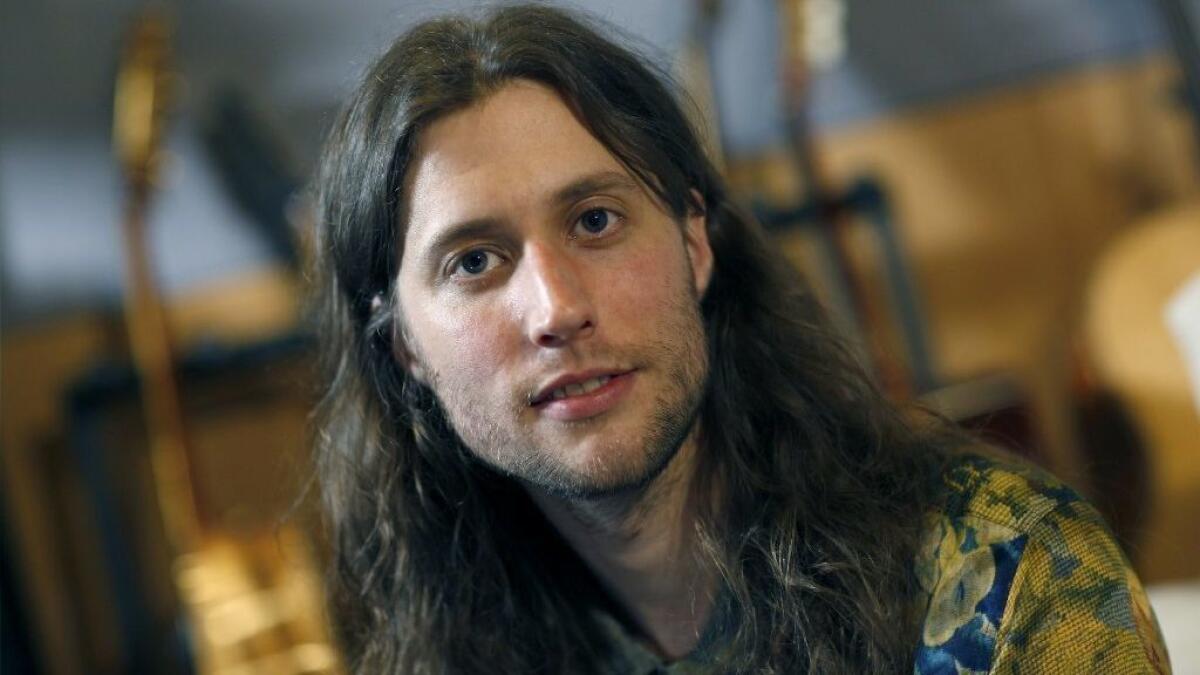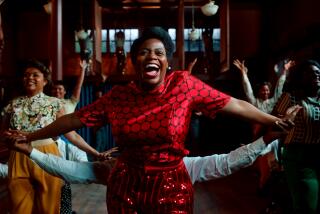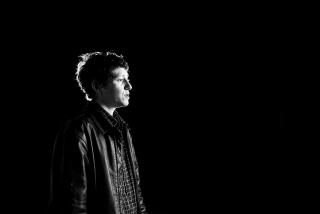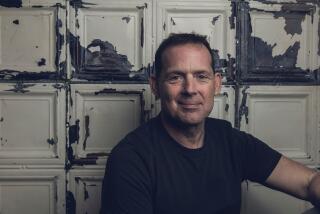Why Swedish composer Ludwig Göransson traveled all the way to West Africa to score ‘Black Panther’

It’s a cinematic mercy that the behemoth blockbuster of 2018 — Ryan Coogler’s “Black Panther” — is also an artistically rich, socially profound film and not just another action-packed comic book movie. In addition to the script’s urgent themes of race and colonization, the uniquely inclusive casting and a heartbreakingly complicated villain, the score by Ludwig Göransson helped root the story in Africa’s fertile musical soil.
The Swedish composer, 34, and Coogler met while they were students at USC — they first bonded during a game of pool over a shared love of Swedish music. Göransson scored the young director’s student films, then kept going on “Fruitvale Station” and “Creed.” Their special camaraderie meant Göransson joined “Black Panther” at the outset of development.
“After he sent me the first draft of the script and I read it, I called him up, and I was like, ‘Hey, Ryan, the only way I’m going to be able to score this is to go to Africa and do research, and record with African musicians,’” Göransson said. “And that’s exactly, I think, what he wanted to hear.”
Four months before shooting began, Göransson traveled to Senegal in West Africa, where he tagged along with local music superstar Baaba Maal on tour.
“He introduced me to all these amazing griots — that’s an African term for musician-storyteller,” the composer said. “One of the instruments that really stuck out to me was the talking drum, which is basically the first type of communication device. It’s a drum you put on your shoulder, and you can pitch it with your arm, and you can ‘talk’ with it.”
Göransson had the talking drum player “say” the name of Chadwick Boseman’s protagonist, “T’Challa” — a three-syllable rhythm that became a recurring motif throughout the score. For T’Challa’s familial foil, Erik Killmonger (Michael B. Jordan), the composer relied on the fula flute playing of Amadou Ba.
“He came to the studio [in Senegal], and when he started playing he was kind of talking into his flute and screaming into it and breathing really loudly,” Göransson recalled. “That was a sound I have never heard before, and it sounded very impulsive, but also in a kind of sad way. To me, it really responded with Killmonger’s character.”
The composer described Killmonger to Ba, who then “went back into the booth and started playing, and he just kind of transformed himself into another character and started screaming ‘Killmonger’ into the flute. That was a true goosebump moment.”
Göransson built the score, which was just nominated for a Golden Globe, on the foundation of these and other elements of native Africana — including an overall sense of traditional rhythm inspired by a trove of old field recordings he found at the International Library of African Music in South Africa. He then planted the requisite, superheroic symphony orchestra (recorded at Abbey Road Studios) and hip-hop beats — for the Oakland-born Killmonger — into that soil, rather than the other way around.
“It was very challenging, trying to add an orchestra on top of these traditional African rhythms,” he said, “because as soon as you add any kind of melody or chords over it, it stops feeling African. I had to use my orchestral elements, and the counterpoint and harmony and theory, and transfer it into a more rhythmical way of writing music. I was treating my orchestral instruments as rhythms and drums.”
When audiences first fly into the mythical country of Wakanda, Baaba Maal sings about an elephant (symbolic of kings) who’s just died. When T’Challa is anointed as the new king, a 40-piece black choir sings a hymn to him (“T’Challa lo”) in the Xhosa language. Beyond the rousing, main “Black Panther” theme, Göransson wrote an “ancestral theme” — a wrenching elegy that plays lush on strings for T’Challa, but “broken down” on solo flute for Killmonger.
The composer, obviously not of African descent himself, said the film still felt thematically personal because of “the story line of a lot of Ryan’s movies, which is just identity.”
“I think me and Ryan and T’Challa, we’re all kind of in the same age,” Göransson said, “where you have a lot of questions, trying to figure out what you’re really trying to make yourself be as a man. I feel like with this movie I got to portray that with music in a bigger way.”
FULL COVERAGE: Get the latest on awards season from The Envelope »
More to Read
From the Oscars to the Emmys.
Get the Envelope newsletter for exclusive awards season coverage, behind-the-scenes stories from the Envelope podcast and columnist Glenn Whipp’s must-read analysis.
You may occasionally receive promotional content from the Los Angeles Times.






